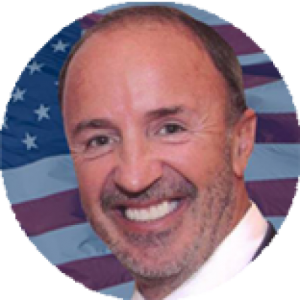Ukrainian President Volodymyr Zelenskyy on Thursday embraced the support of allies who have provided substantial new military aid and a path to joining NATO, even as he emphatically pushed for the help to arrive faster and for restrictions to be lifted on the use of U.S. weapons to attack military targets inside Russia.
“If we want to win, if we want to prevail, if we want to save our country and to defend it, we need to lift all the limitations,” Zelenskyy said alongside NATO Secretary-General Jens Stoltenberg in the final hours of a summit that saw Ukraine receive fresh commitments of weapons and other support to firm up its defense against Russia.
The summit unfolded against the backdrop of a tumultuous American political cycle, with mounting angst among Democrats about President Joe Biden’s ability to serve another four years following a shocking debate flop two weeks ago that threw the future of his presidency into doubt.
NATO APPEARS DIVIDED ON PUSHING BIDEN TO LIFT STRIKE BANS FOR UKRAINIAN OFFENSE
An untimely verbal flub Thursday evening did little to soothe concerns, when Biden at an event for the unveiling of an agreement called the Ukraine Compact mistakenly introduced Zelenskyy as Russian President Vladimir Putin.
Some in the room gasped at Biden’s gaffe, which the U.S. president quickly sought to clean up by saying, “President Putin? You’re going to beat President Putin,” Biden said to Zelenskyy. “I’m so focused on beating Putin, we got to worry about it.”
New British Prime Minister Keir Starmer and French President Emmanuel Macron declined to criticize Biden. Macron said “we can all have a slip of the tongue” and said Biden, with whom he spoke during Wednesday’s dinner, “is very much on top of things.” And Starmer declined at least five times to answer directly about Biden’s gaffe, instead praising him for his leadership and his preparation in putting the event together and securing solid outcomes for Ukraine.
All eyes were on Biden as he closed out the summit of 32 NATO leaders in Washington with a news conference.
Asked about Zelenskyy’s appeal for greater freedom in targeting Russian forces, Biden showed no sign of easing the U.S. limits, saying he was following the advice of his defense and intelligence officials.
“If he had the capacity to strike Moscow, strike the Kremlin, would that make sense?” Biden said of Zelenskyy. He later added, “We’re making it on a day-to-day basis … how far they should go in” to Russian territory.
Ukraine has been the primary focus for European and North American leaders at the summit of the 75-year-old military alliance, with Biden earlier in the day announcing a new military aid package and pledging to Zelenskyy: “We will stay with you, period.”
Though Zelenskyy offered public thanks for the package and a promise by NATO leaders that Ukraine is now on an “irreversible path” to membership in the military alliance, he also sounded an alarm: Ukraine cannot win the war with Russia, now in its third year, unless the U.S. ends limits on the use of its weapons to attack military targets in Russia.
The Biden administration permits Ukraine to fire weapons into Russian territory only for the purpose of hitting back against Russian forces that are attacking or preparing to attack them, concerned that the broader use of American-made weaponry could provoke Russia to widen the war.
Zelenskyy has been pressing for greater latitude so that U.S. weapons could be used to hit critical military bases and installations deeper in Russian territory.
The calls to drop the restrictions have grown in recent months, in the wake of Russian military gains during months in which political battles in the U.S. delayed vital military support for Ukraine.
Stoltenberg and Macron have championed Ukraine’s efforts to win more leeway in how it can use U.S.-provided arms. If we tell Ukrainians “you do not have the right to reach the point from which the missiles are fired, we are in fact telling them that we are delivering weapons to you, but you cannot defend yourself,” Macron said in May.
At a one-on-one meeting with Zelenskyy, Biden touted the aid package as his eighth since taking office, with this latest one consisting of $225 million of support, including an additional Patriot missile system to bolster Ukraine’s air defenses against a deadly onslaught of Russian airstrikes.
The Patriot air defense system, the second the U.S. has provided to Ukraine, is one of several announced this week at the NATO summit and is part of a swell of pledges to get weapons to Ukraine to help it fend off Russian attacks, including one of the deadliest of the war this week that hit a children’s hospital in Kyiv.
The devastating missile attack on the eve of the summit celebrating NATO’s 75th anniversary underscored that Putin may not be ready to make peace for some time.
In a comment on NATO allies declaring that Ukraine is on an “irreversible” path to membership, Dmitry Medvedev, deputy head of Russia’s Security Council, which is chaired by Putin, said Moscow should do everything to “make this irreversible path of Ukraine to NATO lead to the disappearance of either Ukraine or NATO, or better both.”
While promising that Ukraine will one day be a member of the alliance, NATO leaders have said it can only join after the war with Russia and when the allies agree it has met all conditions.
In addition to the offers of more military support, NATO launched a new program to underwrite deliveries of military equipment and coordinate training for Ukraine’s beleaguered armed forces. NATO members also committed to keep up current levels of military aid — about $43.5 billion annually — for at least a year.
The summit has also been shadowed by concerns about growing Chinese and North Korean support for Russia’s invasion.
The flurry of final events at the NATO summit come a day after NATO labeled China a “decisive enabler” of Russia’s war against Ukraine. China in turn accused NATO of seeking security at the expense of others and it has warned the Western military alliance not to bring the same “chaos” to Asia.






